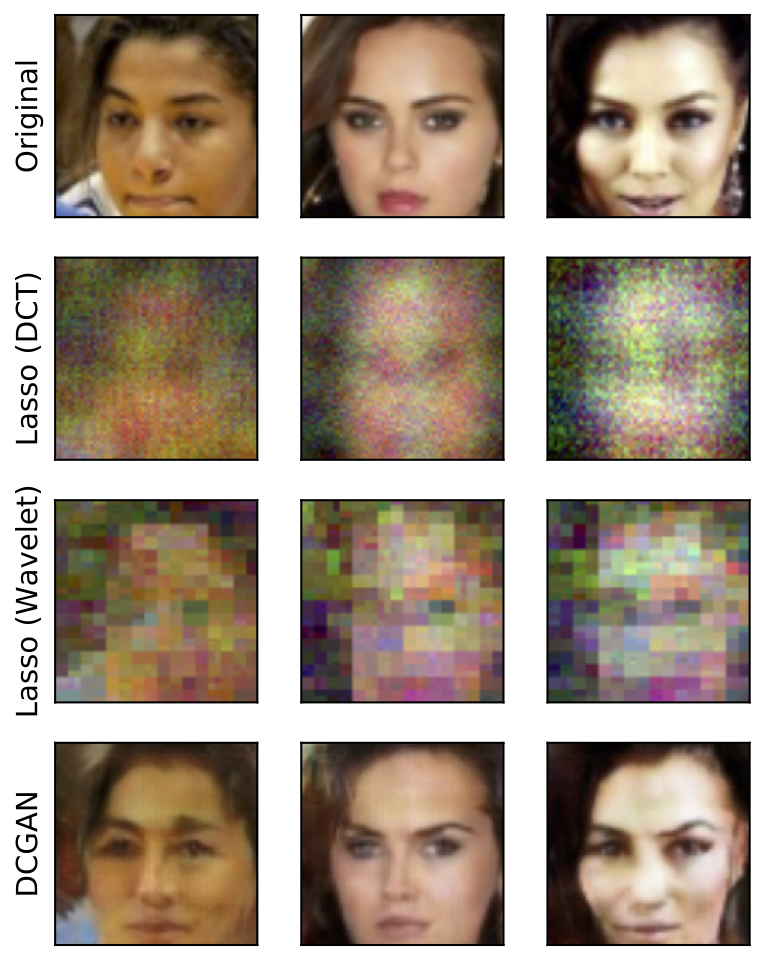Compressed Sensing using Generative Models
The goal of compressed sensing is to estimate a vector from an underdetermined system of noisy linear measurements, by making use of prior knowledge on the structure of vectors in the relevant domain. For almost all results in this literature, the structure is represented by sparsity in a well-chosen basis. We show how to achieve guarantees similar to standard compressed sensing but without employing sparsity at all. Instead, we suppose that vectors lie near the range of a generative model $G: \mathbb{R}^k \to \mathbb{R}^n$. Our main theorem is that, if $G$ is $L$-Lipschitz, then roughly $O(k \log L)$ random Gaussian measurements suffice for an $\ell_2/\ell_2$ recovery guarantee. We demonstrate our results using generative models from published variational autoencoder and generative adversarial networks. Our method can use $5$-$10$x fewer measurements than Lasso for the same accuracy.
PDF Abstract ICML 2017 PDF ICML 2017 Abstract

 MNIST
MNIST
 CelebA
CelebA